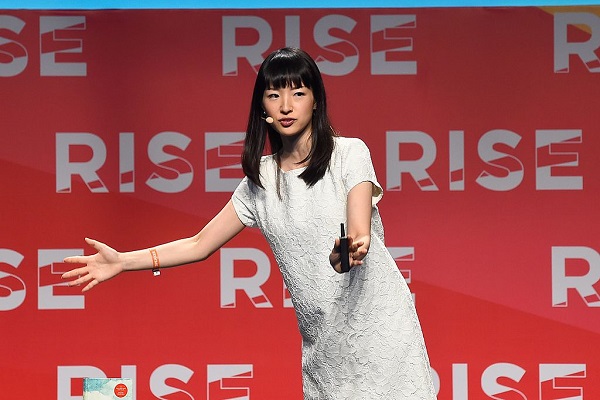
Netflix’s Tidying Up with Marie Kondo shows principles based in the Shinto religion.
Marie Kondo’s method of tidying has gained a vast following in the past few months[/tweetit], extending far beyond the Japanese homes where it was mastered and into the Western world. While many more people are taking Kondo’s advice on how to use the KonMari method to remove clutter and increase their happiness, the fact of the matter is that it is facing backlash.
The Shinto Principles Behind Marie Kondo’s Method of Tidying[/tweetthis]
Japanese individuals are worried that the Shinto principles that guided the creation of the KonMari method are being stamped out of it and replaced with a pseudo-reverence for the tidying technique without context. Much like Yoga, this Eastern practice has been greedily snatched up by white, western audiences that don’t know or want to know about the roots of Kondo’s work.
If one looks past the initial perceptions of oddities that are in place in the Netflix show, one can see the heavy Shinto influences on her cleaning method. While some people might believe Kondo is just being eccentric when she greets houses, it is a habit that is borne from growing up in a Shinto household and visiting shrines frequently. Another example of the Shinto principles bleeding into her work is seen in the way she dresses when organizing the homes of her clients. She never wears a casual outfit like a t-shirt and leggings like her followers at home. Kondo is always dressed in a respectful and professional manner, like a person that is going to an important event, such as worship.
The regard that she holds for certain objects is also another way she shows her Shinto influence. The religion believes there is a certain spiritual sense in all creations, even just something like books, which Kondo frequently “wakes up” by tapping along their spines.
The misunderstanding of her methodology for cleaning is just one issue that has arisen out of the Netflix series that has spread her name and ideas like wildfire throughout the western world. The use of Shinto principles that have been injected into the cleaning and organizing methods have also received backlash in Japan, where people are upset that she took sacred ideas and applied them to what amounts to chores.
Marie Kondo: Throw it away if it doesn’t spark joy
Me: pic.twitter.com/vsTOczCvmp— Annie (@Annie_Michelle_) January 24, 2019
Nevertheless, the lesson here is not one that should be unfamiliar to many in the western world. It’s always a good idea to research the habits of people who influence their culture into their life’s work before writing it off as kookiness and claiming the habits for yourself.
